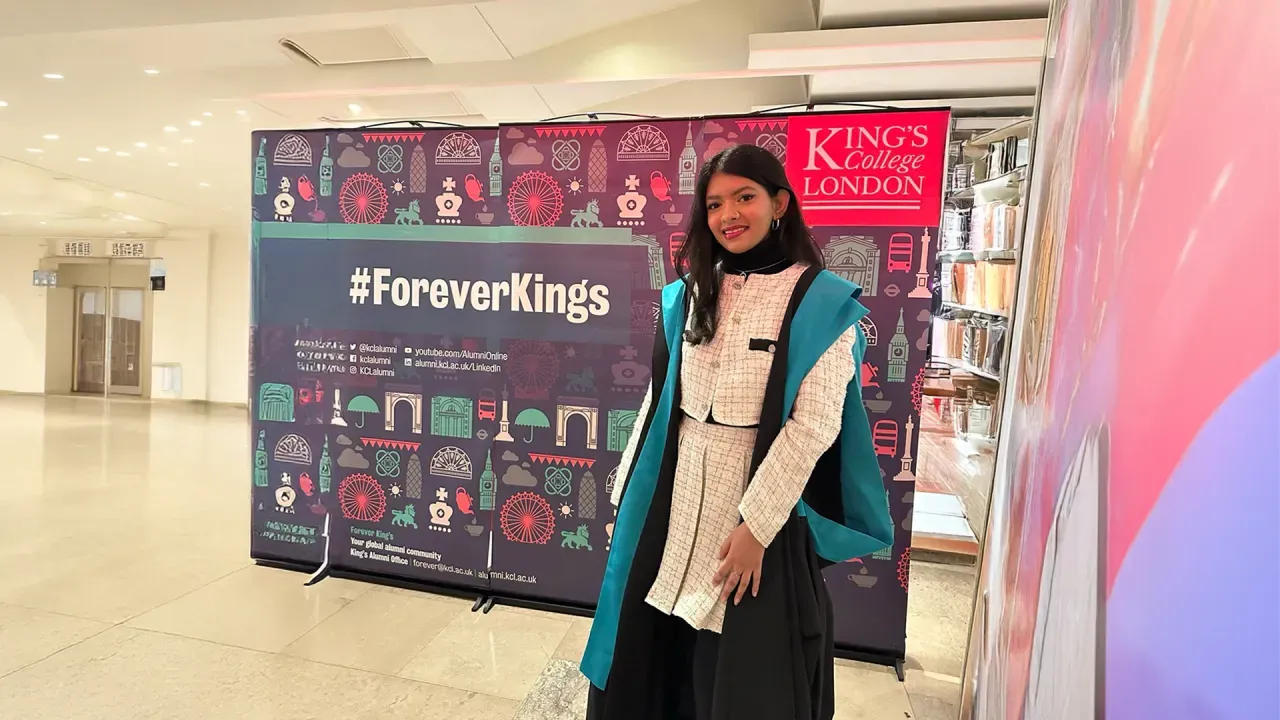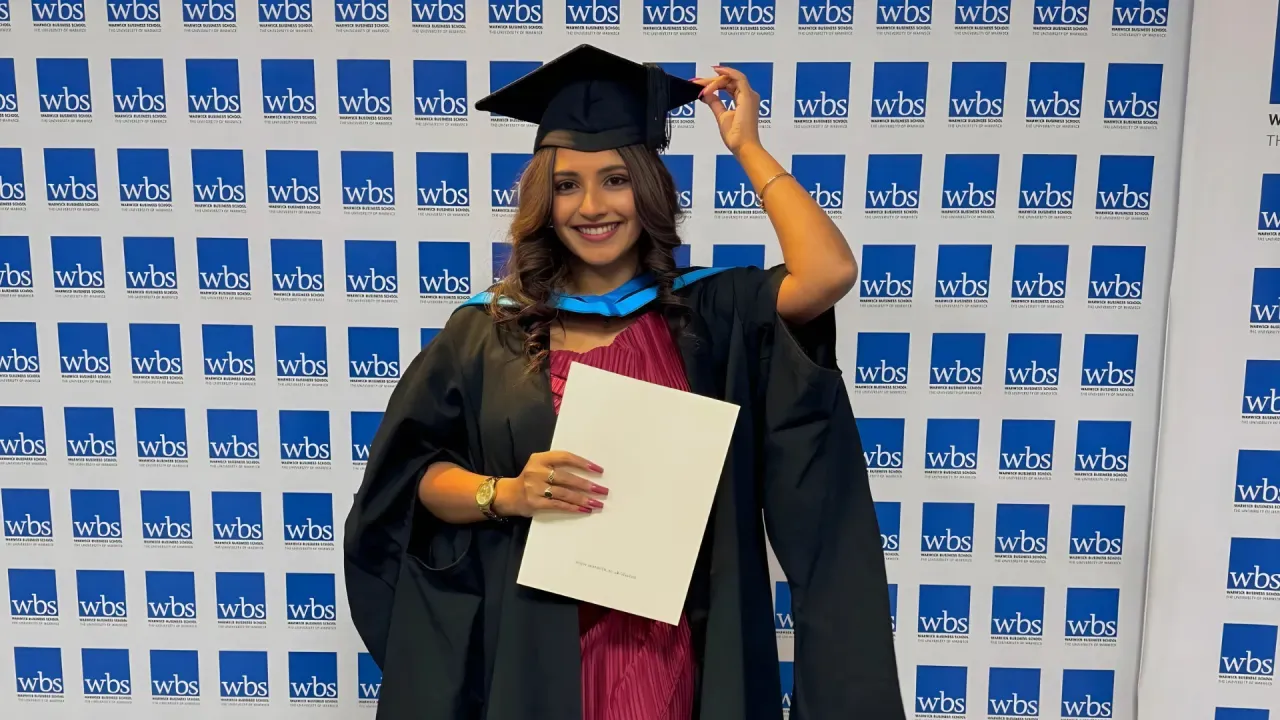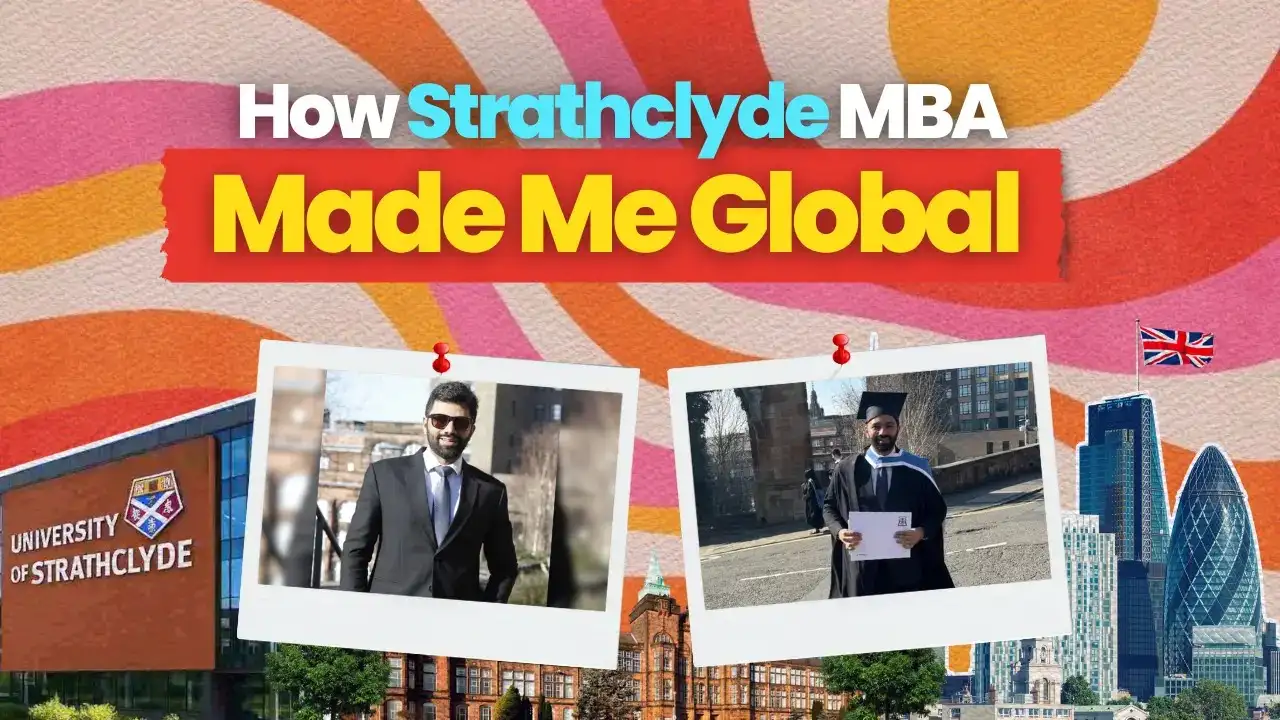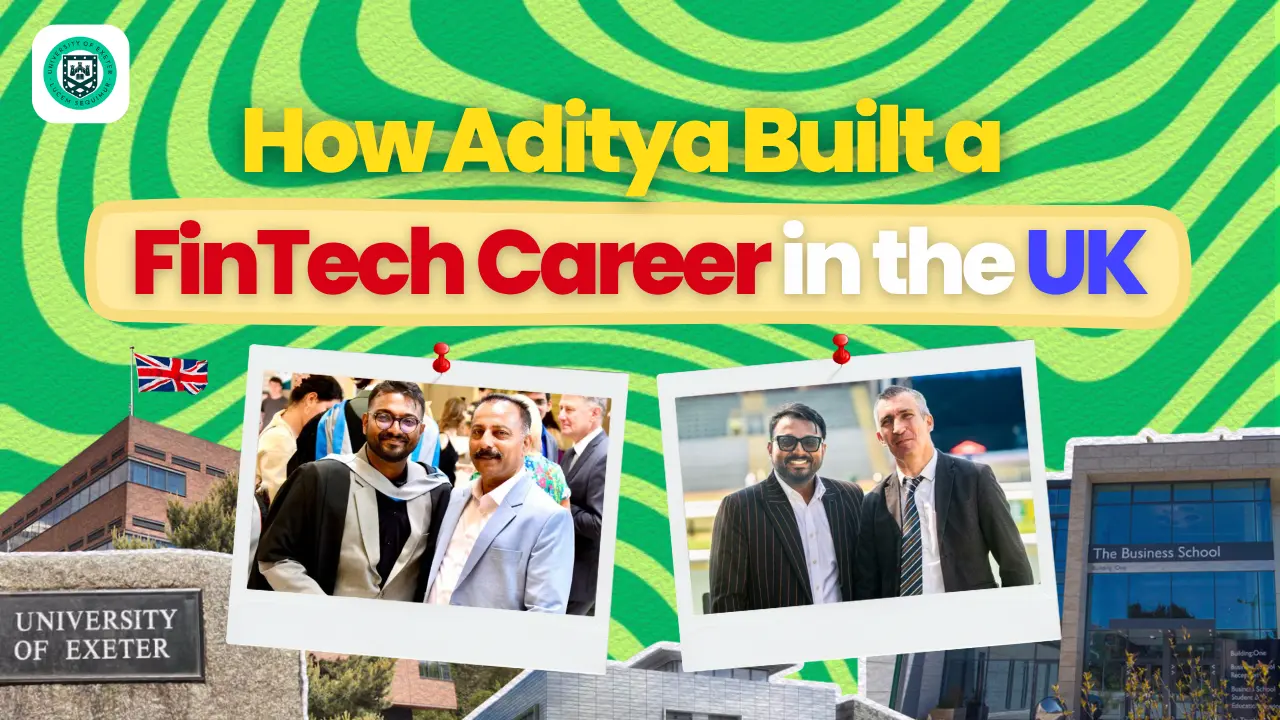Student Reviews
From Delhi to London: How I Transformed My Psychology Degree into a Marketing Career

I’m Sukriti Singh, and I’m currently a Marketing and Communications Officer at the International Water Association. I got this role after pursuing my Master of International Marketing at King’s College, London.
I spoke with Leap about my journey for their expert student series - Indians who had studied abroad recently and are still in that country pursuing their dreams because I want to help others wanting to take the same career jump that I made.
Q: How did you realise you wanted a career in marketing?
I finished my undergraduate degree in psychology from Delhi University in May 2022. While doing internships, I realised I was more interested in marketing. During the pandemic, I completed quite a few remote internships, which is where my interest grew. Right after finishing my undergraduate degree, I applied to King's, and the rest is history.
Q: Why pick the UK over the US for marketing?
There were a few personal reasons. More than half my family is in the States, and it would have been the easy option, but I felt the diversity and culture of London, the global culture, was really fascinating. That resonated more with me.
Q: How difficult was it getting into King's? And why did you choose King's?
I would rate the UK application process as being easier than the States. Obviously, there are certain creative elements you have to prepare, but it's more organised. You have just one personal statement, which you can edit or adjust for different universities. I applied to quite a few universities in London: King's, Imperial, UCL, and LSE. UCL was for a different course. I wasn't that keen on it, as I was more interested in marketing.

Q: Why did you choose King's over Imperial? Did it surprise people?
People were shocked! In India, rankings matter so much that everything else seems irrelevant. What I tell them now is that I chose marketing at King's because of the course and also because I was in touch with alumni from both universities. Even the people at Imperial suggested that if I was really into marketing, I should go for that program. Imperial had a broader course that included accounting and other subjects I didn't want to study at the time. Having just finished my undergraduate degree, I wanted further education but also wanted to enjoy myself without putting myself in a very stressful position. Adjusting to life in a different country is challenging enough - you don't want to make life harder.
Q: So, how did the decision turn out?
I had the best time at King's. Everyone was very welcoming, and I learnt a lot, not just from the faculty but from everyone on the course. We had many group projects, which I really appreciated because everyone was hands-on and came from different walks of life with varied experiences. It was very insightful.
Q: How has the job search been?
It took me around six months to get a job. I'd like to tell most people that regardless of which educational institution you come from -whether it's UCL, Imperial, LSE, King's, or LBS - if they're of a similar calibre, you're going to get the same kinds of jobs and offers. Here, they don't really look at your university; they look at what you bring to the table.
Q: What advice would you give to students navigating this job market?
Work on your personal development and think about how you can differentiate yourself. Ensure everything aligns with your goals. I can only speak from my experience - initially, I wanted to get into luxury marketing, so I built my experiences in those fields and secured relevant internships, which helped.
When you know what you want to do, actively seek out people - cold call or email them, or build your network on LinkedIn. These things help tremendously. During my job search, I reached out to many people. While only a few responded, they answered all my questions. There are lovely people here, and universities also help a lot with event panels and career fairs.
Don't panic too much, don't put too much pressure on yourself, and don't take rejection personally.
Q: Are you speaking from experience?
Yes, after two or three months, I really got burnt out, so I took a month off. It gets very intense, and even though we say don't take rejection personally, it's difficult. But stay positive and keep at it.
When I sort of gave up and stopped looking for a job, that's when I got one. Then I was fortunate or rather, deservedly received sponsorship as well.
When it's meant to happen, it will. Don't stress too much; just work on yourself and be confident, because that's key.
Q: How was the experience of studying there? Especially compared to DU?
I didn't really experience much of DU, to be honest, as I was there for only one semester before everything went online due to COVID. It was very different from school, certainly.
The breaks and teaching methods weren't monotonous or strenuous, which helped tremendously. The people there make the place fantastic such lovely people and such diversity. You learn so much simply by being part of a global environment. We had a brilliant campus as well, so it was a beautiful experience that I would definitely do again.
Q: The students who did their undergraduate studies during COVID had such a unique experience or should we say, unique non-experience. How was it going to a campus after COVID?
I really enjoyed being on campus because I hadn't experienced that during my undergraduate studies. Coming here for my master's felt like I was still an undergraduate because I arrived right after finishing my degree. Experiencing campus life and that sense of normality after COVID subsided was amazing. That's definitely one reason it felt so great getting all that freedom in a different place, then getting back to the academic routine. The teaching style was different as well, more practically focused compared to India.
Then came the dissertation. That's when I realised I was really interested in academia. I thoroughly enjoyed the dissertation process delving deep into a topic of my choosing and conducting data analysis was really fascinating.



